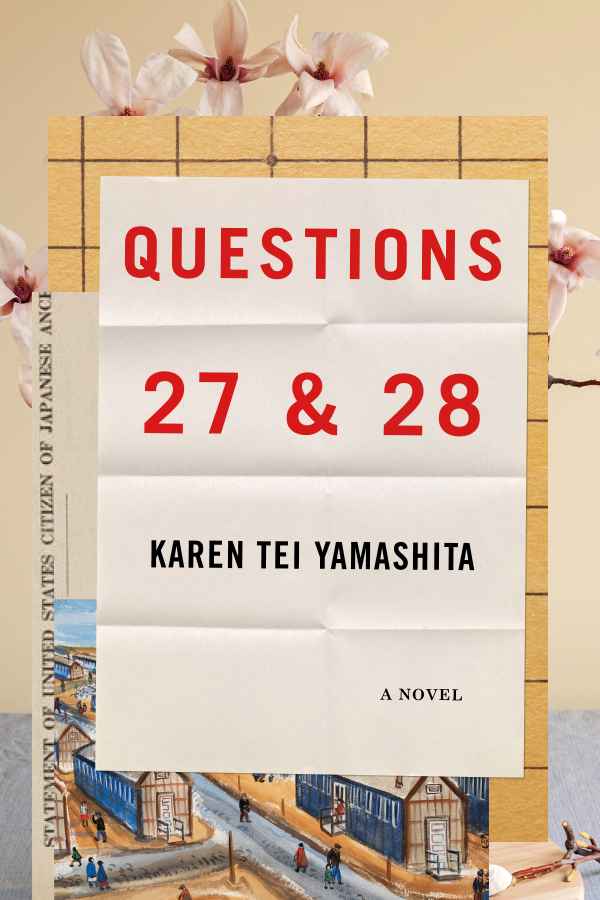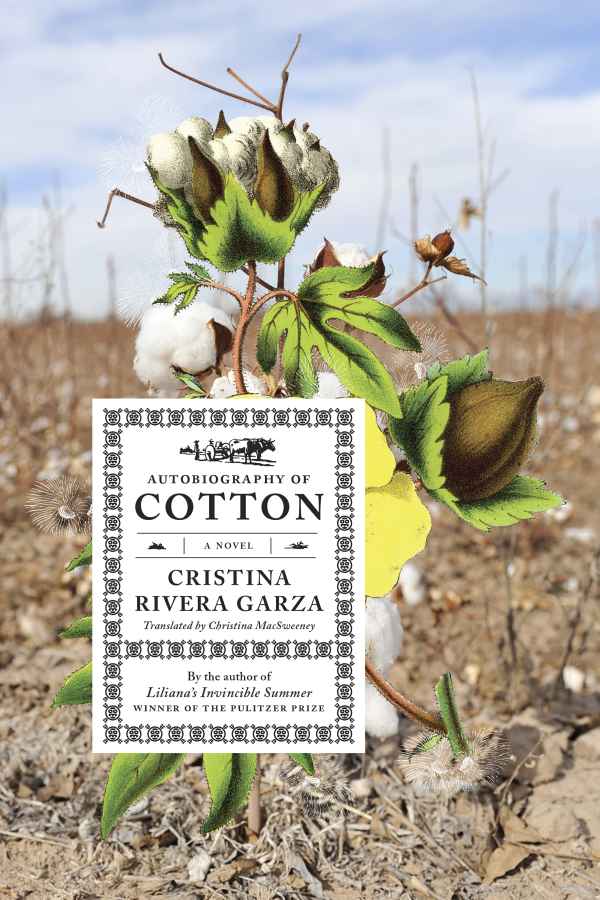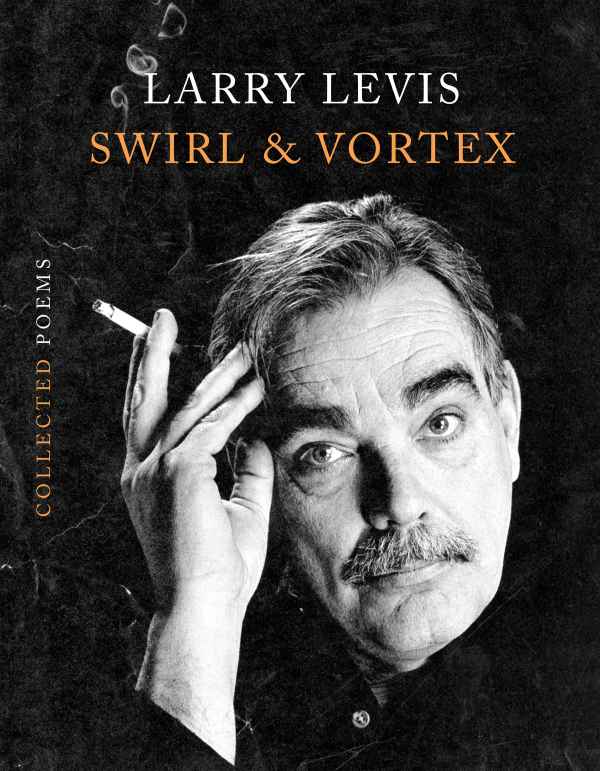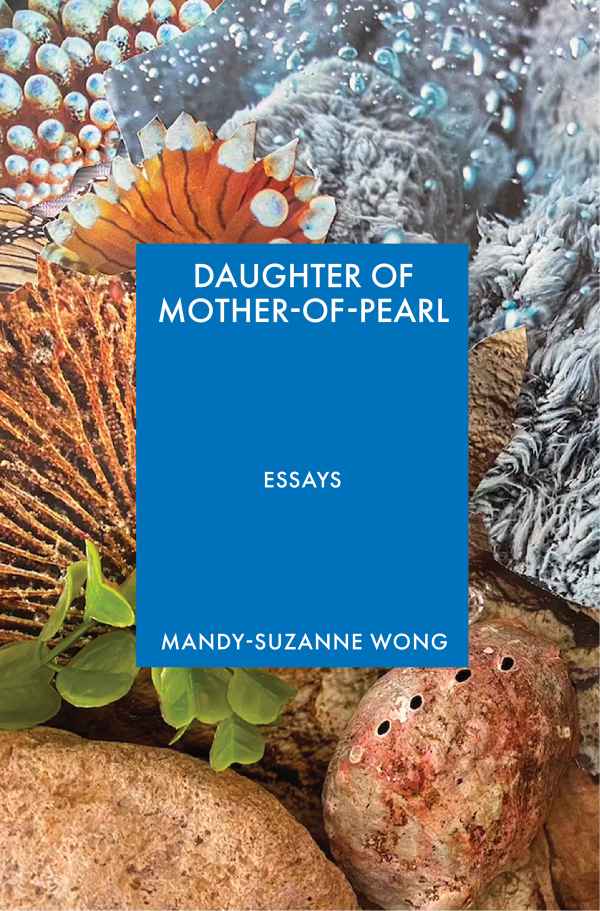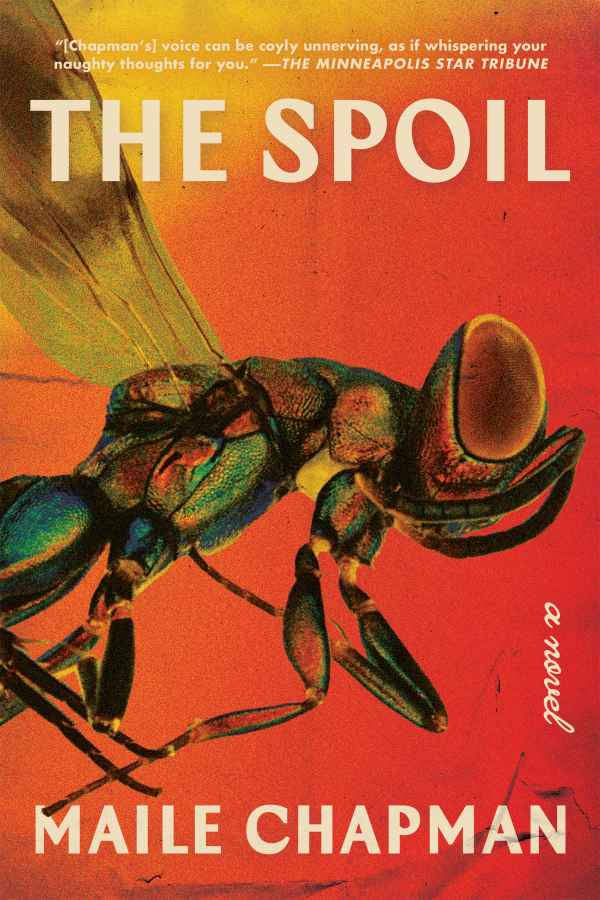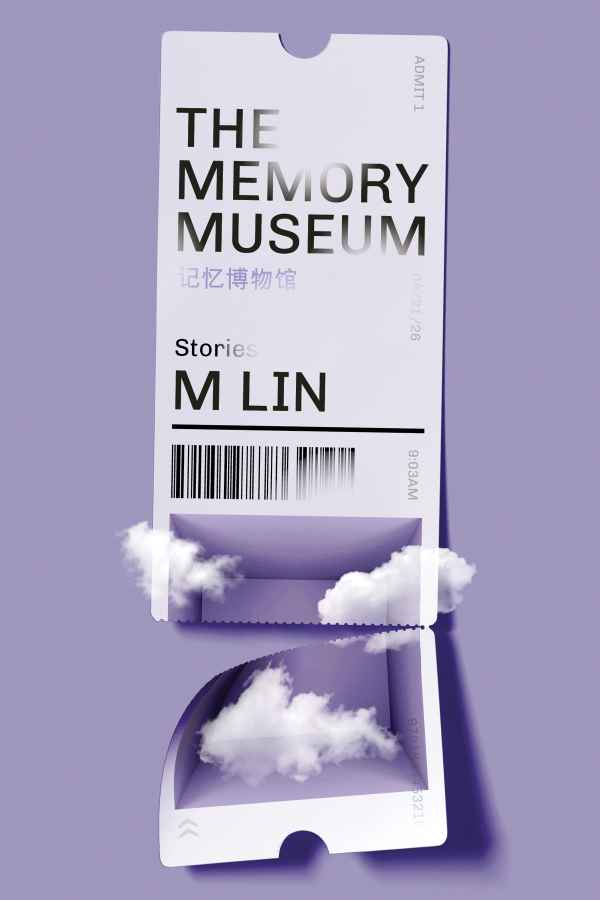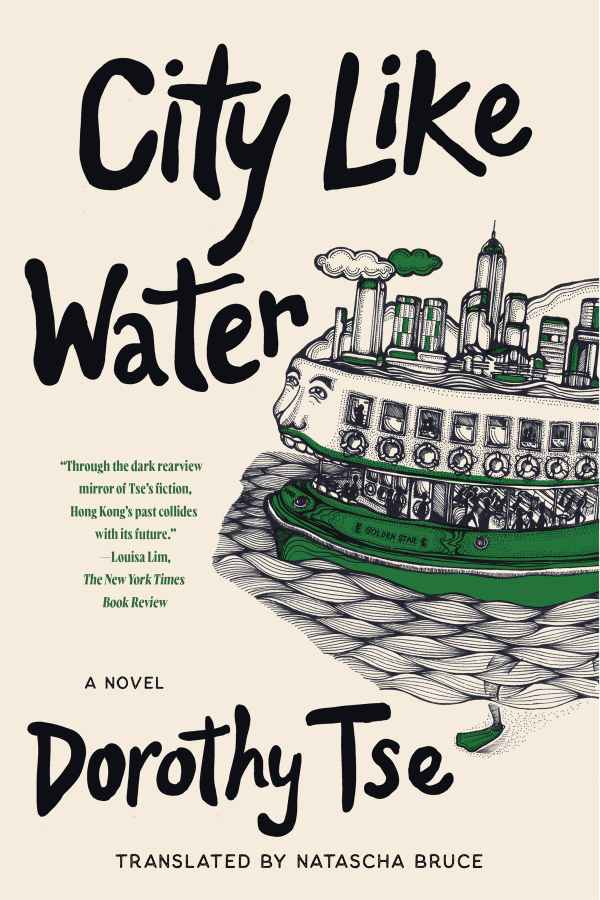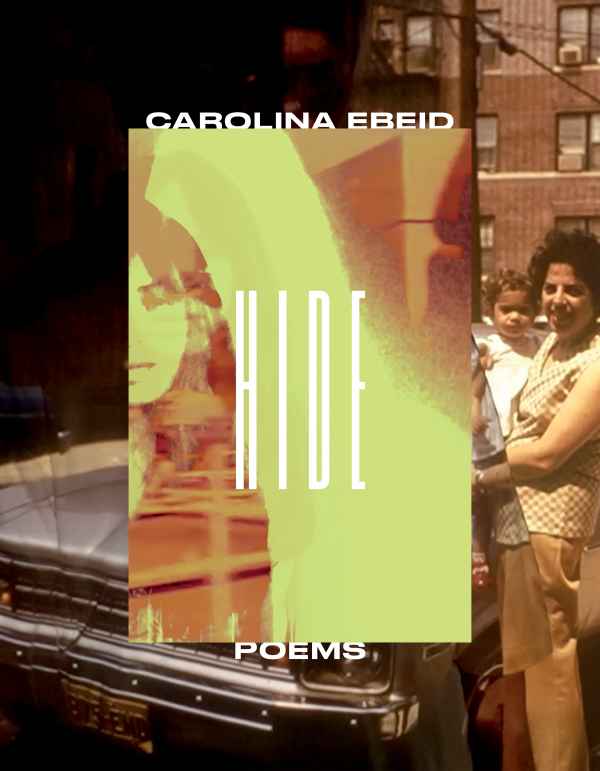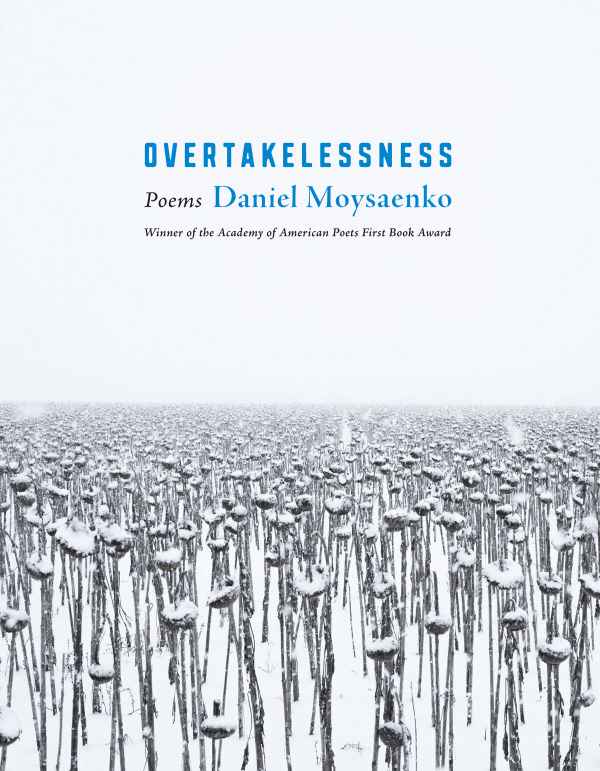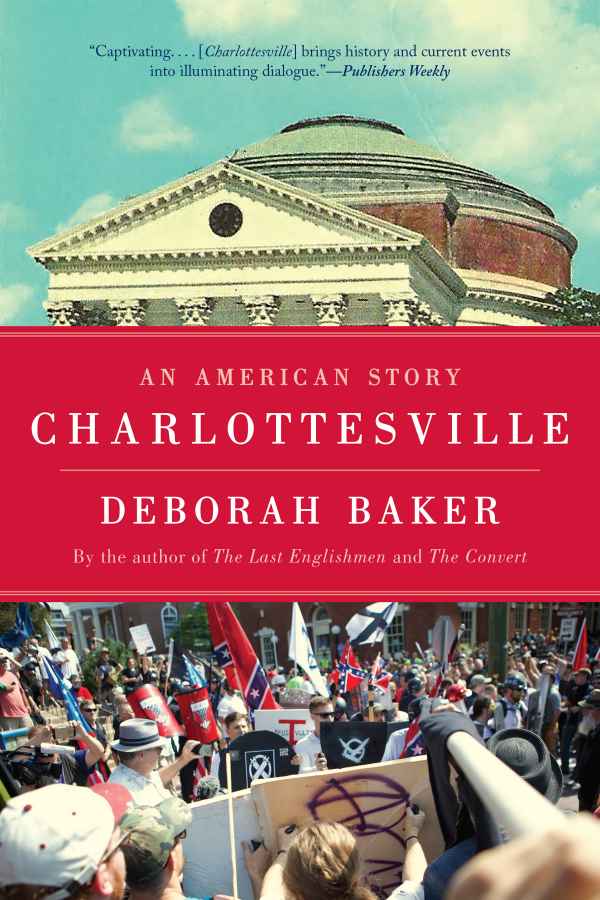Winter 2026 Catalog
Questions 27 & 28
by Karen Tei Yamashita
Publication date April 28, 2026 fiction
A masterful polyvocal history of Japanese Americans before, during, and after World War II
In February 1942, shortly after the bombing of Pearl Harbor, Franklin D. Roosevelt issued an executive order authorizing the secretary of war to remove 120,000 Japanese Americans from their homes on the West Coast and corral them into inland concentration camps. To be considered for release, they were required to answer the so-called loyalty questionnaire. Question 27 asked the inmates—who had been imprisoned without cause by the US military—whether they were willing to serve in combat for the US military. Question 28 asked them—many of whom American citizens who had never visited Japan—to renounce allegiance to the Japanese emperor. Answering these questions caused volatile divisions within the camps, tore families and friends apart, and had lasting repercussions in the decades postwar.
Questions 27 & 28 reaches backward and forward from the time of the questionnaire, chronicling the individuals who arrived in the US from Japan at the turn of the century, their children who came of age during war and incarceration, and their descendants who lived in its aftermath. Yamashita mixes fact with fiction and layers genres from James Bond movies to haiku to oral history, transfiguring an enormity of archival research into a chorus of stories. With her signature wit and aplomb, she gives voice to laborers, artists, scholars, informants, and activists who, over three generations, defined an immigrant community.
Questions 27 & 28: A Novel
April 28, 2026
978-1-64445-381-0
Autobiography of Cotton
by Cristina Rivera Garza; Translated from the Spanish by Christina MacSweeney
Publication date February 3, 2026 fiction
A novel about how cotton workers transformed the Mexico-US borderlands, by a Pulitzer Prize–winning author
In 1934, a young José Revueltas traveled to Tamaulipas to support the cotton workers’ strike in Estación Camarón, which became the basis of his landmark novel Human Mourning. In her own groundbreaking novel, Autobiography of Cotton, Cristina Rivera Garza recounts her grandparents’ journey from mining towns to those same cotton fields as it intersects with Revueltas’s life in a vivid and evocative history of cotton cultivation along the Mexico-US border.
Autobiography of Cotton: A Novel
February 3, 2026
978-1-64445-369-8
Paperback $17.00
288 pages 5.5" x 8.25"
Brit., trans., 1st ser., dram.: The Wylie Agency
Audio: Graywolf Press
Swirl & Vortex
by Larry Levis; Edited by David St. John
All the blazingly original work by Larry Levis, “one of the greatest poets of a generation” (Carolyn Forché)
When you turn & there is only the light filling the empty window?
When the angel fasting inside you has grown so thin it flies
Out of you a last time without your
Knowing it, & the water dries up in its thimble, & the one swing
In the cage comes to rest after its almost imperceptible,
Almost endless, swaying?
—from “Elegy with a Thimbleful of Water in the Cage”
Swirl & Vortex: Collected Poems
February 3, 2026
Daughter of Mother-of-Pearl
by Mandy-Suzanne Wong
Publication date February 17, 2026 literary collections
Mollusks’ innermost selves are absolute secrets because, not only do they hide in shells or distant habitats, but also that’s just how it is with innermost selves.
Daughter of Mother-of-Pearl collects Mandy-Suzanne Wong’s reminiscences, dreams, investigations, and experiments in being with small invertebrates whose vulnerability and creativity inspire radical reimaginings of Earthlinghood. In graceful linked essays, Wong wonders: What constitutes a self if a starfish can twist off one of his arms to explore the seafloor on its own? What is an animate being, considering a living snail is also an inanimate shell? What does love mean to a jellyfish, or time to an octopus? Her encounters with nonhuman animals reshape her language into different forms from collage to fragments, and prompt uncommon engagements with various texts. She looks behind words like “invasive” and “endling” in scientific articles and in poetry, questions natural selection with a bubble-rafting snail, sees the bivalve in Dostoevsky, and studies a speculative treatise about a “vampire squid from hell.”
Daughter of Mother-of-Pearl: Essays
February 17, 2026
The Spoil
by Maile Chapman
Publication date March 17, 2026 fiction
A mesmerizing novel about the perplexities of memory, Las Vegas real estate, DIY projects, and demons
Years later, Mandy is living in Las Vegas in a modern townhouse caring for her mother who is in a terminal decline from Alzheimer’s. She works for a real estate company but struggles to focus on her tasks. She takes medication to manage her ADHD, which has her zagging between distraction and obsession, always halfway through some home renovation project. Then, while digging through a box of her mother’s things hoarded in her garage, she sets something loose. Something old and baleful: a demon that soon possesses one of her neighbors, an affable semiretired house flipper and handyman named TK. What follows is a gripping and often terrifying story of familial grief in which the past is both elusive and paralyzing, and questions of science and spirit become urgent.
Maile Chapman is the author of Your Presence Is Requested at Suvanto. Her stories have appeared in A Public Space, the Literary Review, the Mississippi Review, and Post Road. She earned her MFA from Syracuse University and teaches at the University of Nevada Las Vegas.
The Spoil: A Novel
March 17, 2026
The Memory Museum
by M Lin
Publication date April 21, 2026 fiction
An expansive debut collection exploring the complex lives of women in China and the Chinese diaspora
Stretching from the present day to the near future, from China to America and beyond, M Lin’s piercing and melodious debut captures the spirit of China’s One-Child Generation as its characters navigate homes and cultures, hopes and contradictions, survival and resistance. These frank, tender, and playful stories offer profound insight into the ambivalence of migration, the perverse ways race and class can operate, and what it means to be Chinese today.
The collection begins with “Scenes from Childhood,” in which a lonely, elderly woman in a dystopian reality remembers her grandfather’s village. In “Magic, or Something Less Assuring,” a politically divided couple goes on a divorce honeymoon in Morocco. “You Won’t Read This in the News” features four migrant workers during one night of petty theft and connection. In “Tough Egg,” a filmmaker thwarted by censorship untangles her fraught relationship to motherhood. Other stories portray a photographer reuniting with her first love in Beijing; the historic White Paper protests that ended the zero-COVID policy; and generations into the future, a newly instated Memory Museum where two sensory architects share their vision for a utopian world.
With daring political and creative commitment, The Memory Museum brims with joy even as Lin exposes the knife’s edge between powerlessness and agency, pain and intimacy, our memories and our futures.
The Memory Museum: Stories
April 21, 2026
978-1-64445-385-8
City Like Water
by Dorothy Tse; Translated from the Chinese by Natascha Bruce
Publication date March 3, 2026 fiction
A potent and disorienting new book by the author of Owlish, a National Book Critics Circle prize finalist
The city you grew up in is gone, as if sunk to the bottom of the ocean. So much has vanished with it—classmates, teachers, counterfeit watches, the erotic toe cleavage that used to lead the way down secret passages. Yet you still catch snatches of conversation lingering in the air and glimpse sun-dazzled residents retreating into dark crevices.
People seem to keep disappearing. Your mother joins in a housewives’ protest, each woman waving the fake, bloody lotus roots they were sold until police helicopters unleash a glittery spray that turns them into statues. Then it’s just you and your father at home, until he is quietly absorbed into the enormous new TV gifted by the government, and you spot him doing tai chi or picking through leftovers in the background of soap operas. And didn’t you once have a little sister, before she flew away in her school uniform? As the police go undercover and transform your neighborhood into a violent labyrinth you can no longer navigate, where does this leave you?
Lucid, nightmarish, and indelible, City Like Water is a wondrous and pointed message in a bottle from a city not so different from your own.
City Like Water: A Novel
March 3, 2026
Hide
by Carolina Ebeid
Publication date March 3, 2026 poetry
A reinvention of visual poetry and personal history charting exile’s impact on memory, identity, and futurity
into an index of blue
blue cellophane blue crinoline
spun sugar blue
dissolving on a tongue
Another leap and another down
to touch the bottom through
a glitch band of electric snow
Every sound underwater blooms like iron
—“Home Movie: Maria Jumps into the Pool”
Intellectual and intimate, Carolina Ebeid's Hide gathers shreds of memory, dream, and the ordinary artifacts of diaspora, as the poet casts a sounding line into her patrilineal and matrilineal histories in Palestine and Cuba. With the hum of cassettes and the glow of projectors, these poems superimpose voice upon voice, image upon image, a here upon a there, to disclose the choral noise inside postmemory.
Hide is a restless innovation of form and multimodal expression breaking open words across Arabic, English, and Spanish to release hidden meanings. Poems trace the letter M back to the Phoenician pictograph of waves, while technological “glitches” are portals that summon oracular voices across the family archive. In swirling “spell” poems, Ebeid conjures Cuban American artist Ana Mendieta, whose Siluetas write the human shape upon the earth.
Ebeid’s title is prismatic: Hide as in concealment, as in animal skin, as in to secret oneself away. Hide commands attention like a whispering voice, prompting readers to lean in, to listen for transmissions from ancestors and futurity both.
Carolina Ebeid is a multimedia poet and author of You Ask Me to Talk about the Interior. She edits poetry at The Rumpus and Visible Binary and is the 2023–2025 Bonderman Assistant Professor of the Practice in Literary Arts at Brown University.
Hide: Poems
March 3, 2026
Overtakelessness
by Daniel Moysaenko
Publication date April 7, 2026 poetry
Winner of the Academy of American Poets First Book Award, selected by Alberto Ríos
In bed, leaves whipping the roof hard
as hail, I watch the news on my phone:
A muffled shaky video from Ukraine
like the one shot by my cousin.
A crater
a crater
a crater
a crater
—from “They Began Their Stories ‘When the War Ended’”
In spare lyrics, prose poems, and ravaged blocks of text, Overtakelessness becomes a book of gaps that haunt the spaces between ancient folktales, lost Soviet records, relatives’ failing memories, nationalist misinformation, and the rhythms of Ukrainian speech. Many of these poems are collages mediated by technology, the news coverage of bombings, the photos of soldiers shared on social media, the time delays of Zooming with family—the war experienced firsthand and by smartphone, “its screen a reflective blank, a sky populated by ghosts.” These gaps and rifts argue, finally, that what cannot be held cannot be seized.
Overtakelessness is a moving and extraordinary debut collection.
Overtakelessness: Poems
April 7, 2026
Charlottesville
by Deborah Baker
Publication date April 21, 2026 history
Now in paperback, the story of the torch march and rally that shocked the nation
In August 2017, over a thousand neo-Nazis, fascists, Klan members, and neo-Confederates descended on a small southern city to protest the pending removal of a statue of Robert E. Lee. Within an hour of their arrival, the city’s historic downtown was a scene of bedlam as armored far-right cadres battled activists in the streets. Before the weekend was over, a neo-Nazi had driven a car into a throng of counterprotesters, killing a young woman and injuring dozens.
Pulitzer Prize finalist Deborah Baker has written a riveting and panoptic account of what unfolded that weekend, focusing less on the rally’s far-right leaders than on the story of the city itself. University, local, and state officials, including law enforcement, were unable or unwilling to grasp the gathering threat. Clergy, activists, and organizers from all walks of life saw more clearly what was coming and, at great personal risk, worked to warn and defend their city.
To understand why their warnings fell on deaf ears, Baker does a deep dive into American history. In her research, she discovers an uncannily similar event that took place decades before when an emissary of the poet and fascist Ezra Pound arrived in Charlottesville intending to start a race war. In Charlottesville, Baker shows how a city more associated with Thomas Jefferson than civil unrest became a flashpoint in a continuing struggle over our nation’s founding myths.
Deborah Baker is the author of A Blue Hand and The Last Englishmen. Her biography In Extremis was a finalist for the Pulitzer Prize and her book The Convert was a finalist for the National Book Award. She lives in New York and Charlottesville.
Charlottesville: An American Story
April 21, 2026
